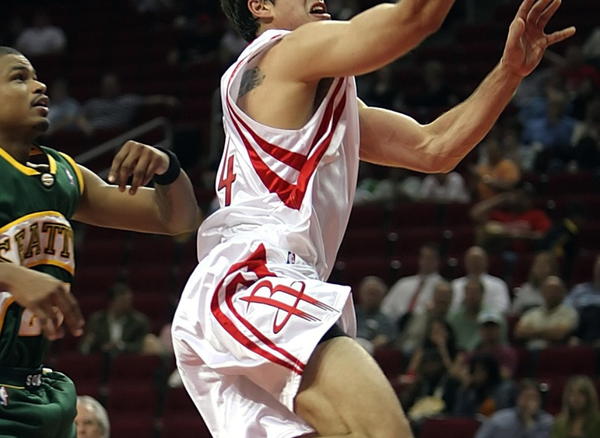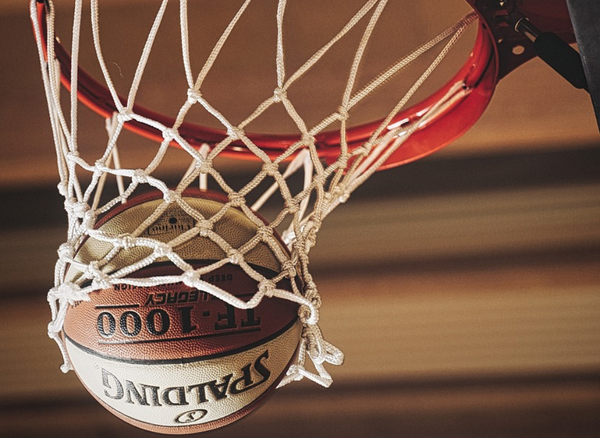Basketball, a game full of dunks, dribbles, and drama, also comes with its fair share of rules that can sometimes make a law book look like child's play. Among these, the concept of a "team foul" often leaves fans scratching their heads, wondering if they missed a meeting with the rule committee. Let's break it down.
What is a team foul in basketball?
Simply put, it's a collective measure of personal fouls committed by players of the same team during a game. Unlike the solo spotlight that shines on a player committing a personal foul, a team foul puts the whole squad under scrutiny. Think of it as the basketball gods saying, "It's not just you; your whole crew's in this together."
Each time a player fouls, it adds to the team's foul total. This isn't just a number to make statisticians feel important; it has real game implications. Once a team hits a certain number of fouls, known as the foul limit, the opposing team gets to shoot free throws. This is where the phrase "foul trouble" comes from, indicating a team is perilously close to giving away free points.
What is the bonus situation in basketball?
When a team commits a foul, the immediate cost might not be apparent, especially if the fouled player wasn't shooting. However, once a team accumulates four team fouls in a quarter, every subsequent team foul (starting from the fifth) sends the opposing player to the free throw line for what are called the bonus situation.
This is where the opposing team can really capitalize. Whether it's a shooting foul or a loose ball foul, once the limit is reached, every foul results in free throw attempts. This can dramatically shift the momentum of the game, turning a comfortable lead into a nail-biting finish.
Strategy Behind Fouls
Coaches lose hair over this: managing the number of team fouls. It's a delicate balance. Play too aggressively, and you risk sending the opposing team to the foul line too often. Play too passively, and you might as well roll out the red carpet for them to score. It's about finding that sweet spot where aggressive meets smart.
Strategically, a team might sometimes commit a foul on purpose; like the Hack a Shaq. This is seen when the game clock is winding down, and the score is tight. A team might foul to stop the clock and force the opposing team to earn their points at the free throw line, hoping for a miss that could turn the tide of the game.
Impact of Excessive Fouls
What happens when fouls continue to pile up? Apart from giving away free points, excessive fouling can lead to players being in foul trouble, where they are at risk of being fouled out of the game. This can weaken a team, especially if their star players are the ones racking up fouls.
Moreover, in college basketball basketball, the rules around team fouls can slightly vary, adding another layer of complexity to the game. Coaches not only have to be experts in strategy but also in the nuances of the rule book.
Fouls in Different Periods of the Game
The role of fouls changes as the game progresses. Early in the game, teams might be more aggressive, testing the limits of the referees and the opposing players. As the game moves into the fourth quarter or an overtime period, the strategy around fouling can change dramatically. Teams need to adjust their play style based on their foul total and how close they are to hitting the foul limit.
Basketball Team Foul FAQ
Browse through our frequently asked questions to learn more about team fouls.
How many fouls does it take for a team to be in the penalty?
In the NBA, a team is in the penalty and gives up free throws on non-shooting fouls starting with the fifth team foul in a quarter. In NCAAM basketball, the seventh team foul puts a team in the bonus, allowing one and one free throws, and the tenth foul awards two free throws.
What is the difference between a team foul and a personal foul?
A personal foul is attributed to an individual player and involves illegal physical contact deemed by the referees. A team foul is the total count of personal fouls committed by all team members during a game.
Can team fouls affect the outcome of a basketball game?
Absolutely! Team fouls can lead to free throw opportunities for the opposing team, potentially shifting the game's momentum and affecting the final score, especially in closely contested matches.
What's the difference between a personal foul and a team foul in basketball?
A personal foul is attributed to an individual player and involves illegal physical contact deemed by the referees. It can result in free throw attempts for the opposing team or other penalties. On the other hand, a team foul is the total count of personal fouls committed by all team members during a game.
What counts towards team fouls?
Any personal foul committed by a player on the team counts towards the team foul total. This includes fouls during shooting attempts, loose ball fouls, and technical fouls. However, offensive fouls do not count towards the team foul total, as they are considered violations rather than personal fouls.
Can a team foul out in basketball?
No, individual players can foul out of a game if they exceed the limit of personal fouls (six in NBA). However, there is no limit on team fouls. However, accumulating too many team fouls can result in giving away free throw opportunities and potentially weaken a team's chances of winning the game.
Is a technical foul a team foul?
Yes, a technical foul is counted as a personal foul for the player who committed it and adds to their team's overall foul count. However, if a technical foul is called on the coach or bench personnel, it does not count towards the individual player's fouls or team fouls.
Is a charge a team foul in basketball?
No, a charge is not considered a team foul as it is classified as an offensive foul, turnover. It does not add to the team's overall foul count and does not result in free throw attempts for the opposing team. However, if a player commits a blocking foul while trying to take a charge, it will count towards their individual fouls and the team's total fouls.
Summary
Understanding what a team foul in basketball is involves more than just counting how many times a referee blows a whistle. It's about understanding the strategic implications that fouls have on the game, the pressure it puts on players and coaches, and the excitement it adds for the fans. Whether it's stopping the clock, managing player fouls, or trying to gain possession, team fouls are a crucial part of basketball that can change the outcome of the game.









